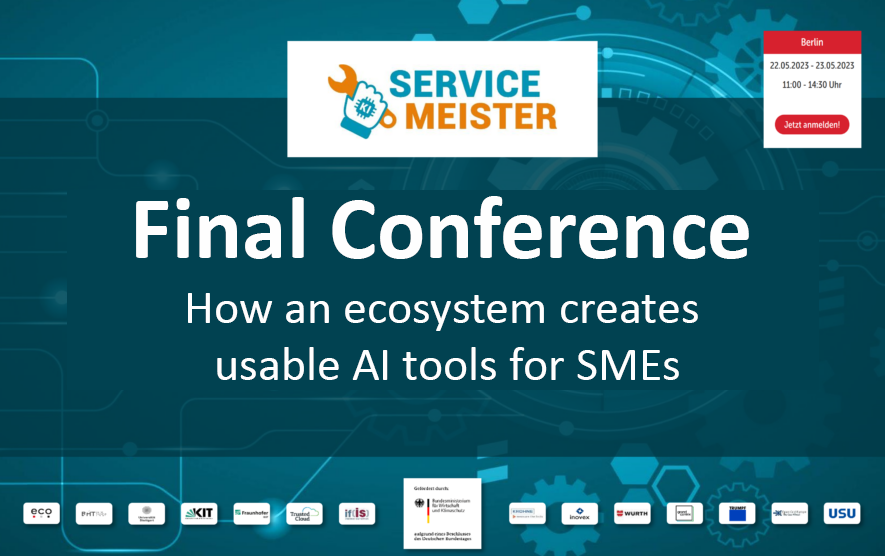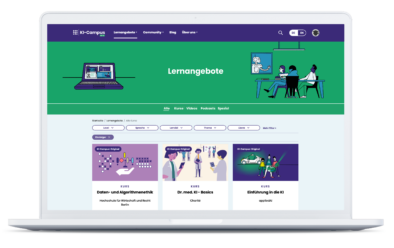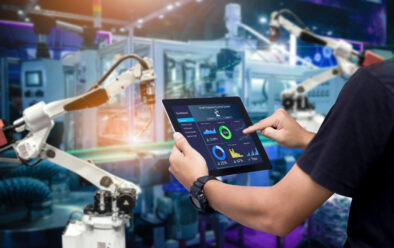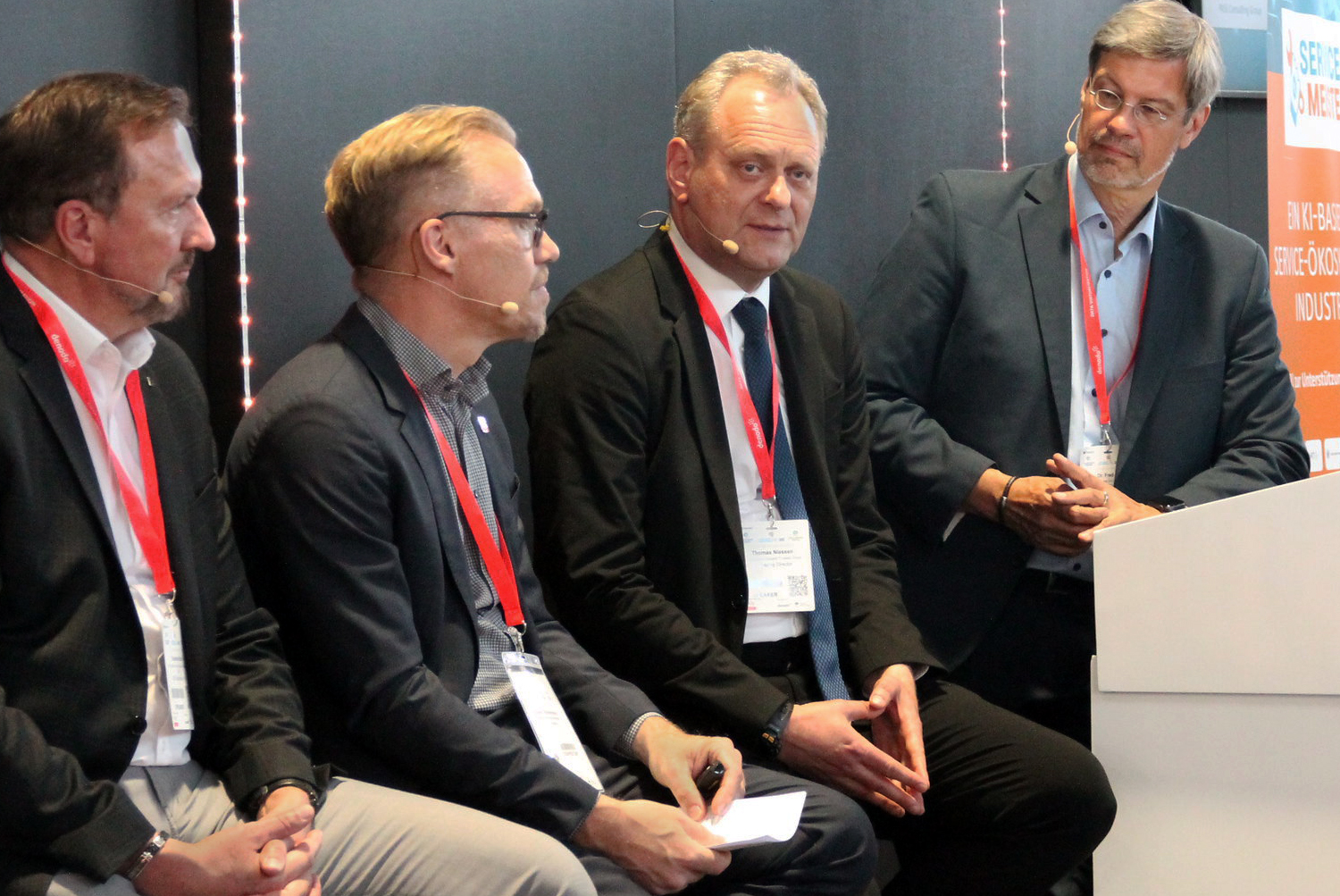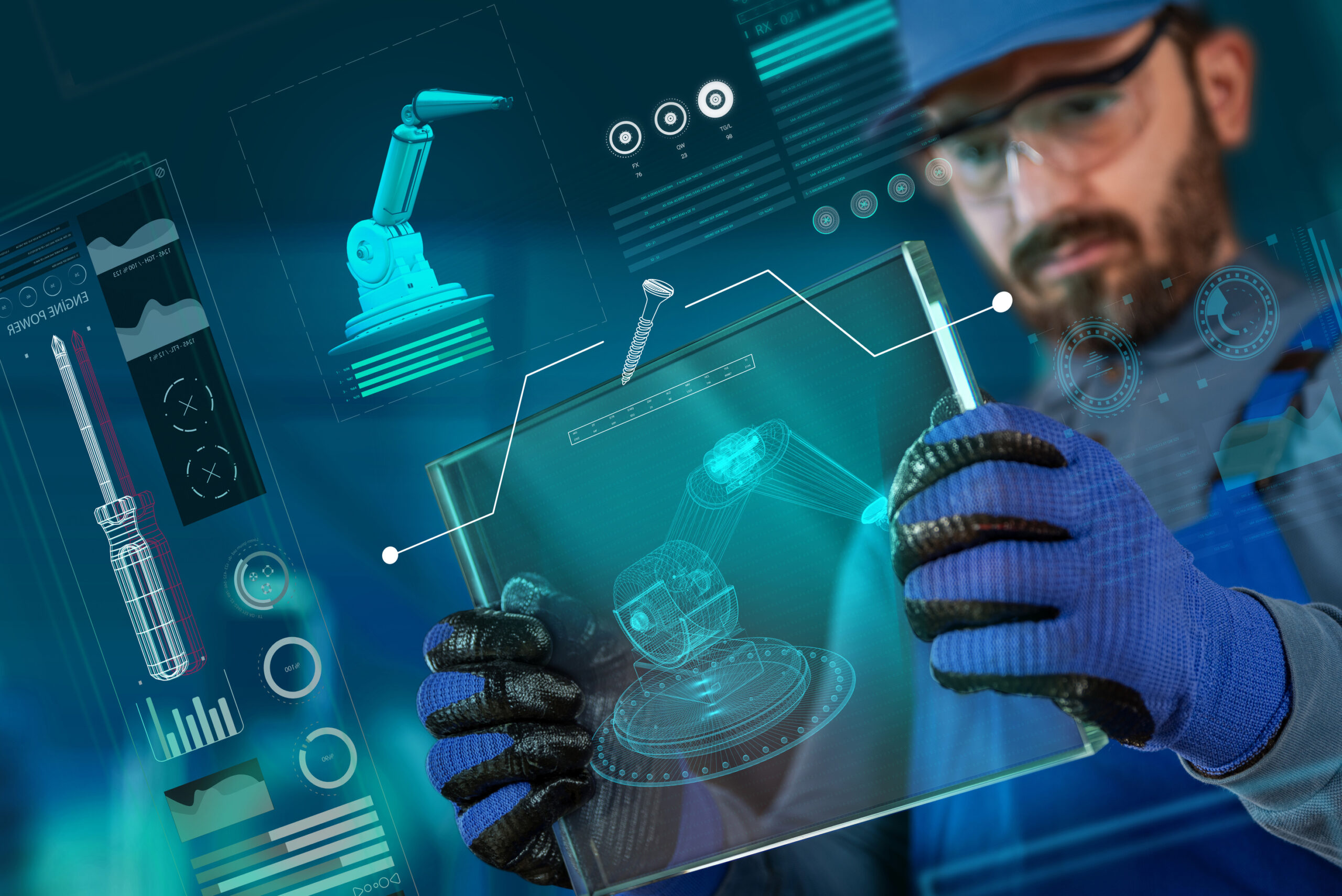Daten teilen, nicht nur um Maschinen und Anlagen verfügbar zu halten, sondern neue Geschäftsmodelle zu realisieren – auf der Abschlusskonferenz von Service-Meister dreht sich am 22. und 23. Mai in Berlin alles um die Frage, wie Künstliche Intelligenz Wertschöpfung in Industrie-Service und Mittelstand neu definiert.
Articles by Christine Neubauer
KI Service - Industrie 4.0
Regardless of whether you are an entrepreneur or a service technician – the practical course is aimed at all participants. Especially for SMEs, “AI in technical service” is a helpful offer: Those responsible learn to assess to what extent the use of AI is generally worthwhile for them and in which areas their existing toolbox can be usefully supplemented with AI.
Nine out of ten service employees spend at least half an hour a day searching for information. Information that is necessary to be able to work at all. How digitalised service knowledge not only makes life easier for technicians but also enables data-based business models.
To what extent neural networks can be protected under copyright law like databases, how machine learning algorithms differ from computer programmes in questions of intellectual property and at what point decentrally trained, artificially intelligent (AI) models can be a trade secret – a brief by HTWG Konstanz commissioned by the Karlsruhe Institute of Technology (KIT) explores legal questions surrounding federated learning.
Searching large text corpora is an almost trivial task in 2022. Distributed, high-performance databases search thousands of texts in seconds, looking for keywords, places or names. But what if we don’t know exactly how the information we are looking for was stored?

White paper from Krohne and Inovex on PDF documents: Salvaging data treasures and making them available in a machine-readable form
Integrating data into business models and tapping into new sources of revenue – how this is supposed to succeed is not clear for many companies. In addition, analogue formats, heterogeneous systems and closed silo structures cloud the view. Why it pays to salvage data treasures. And how service knowledge can be extracted from PDF files, for example.
Optimising products, advising customers better and handling service cases faster – association analyses of service data make it possible. Which requirements have to be fulfilled, and which further advantages are offered to companies – grandcentrix and Würth report on the results of their work for Service-Meister in the blog post.
Not only manufacturing first-class products, but also realising data-based business models – Service-Meister discussed how SMEs can benefit from the service economy at Cloud Expo Europe Frankfurt.
Implementing service-based business models and monetising machine data – for many companies, this is still a pipe dream. Stephan Boch from KEB Automation explained how SMEs can get started via Service-Meister at the expert forum of the service association KVD.
Promoting innovation and exploiting business opportunities – wherever companies engage in platform-based ecosystems, all market participants benefit. A new white paper from the Global Industry Organizations (GIO) also shows the success factors using the example of Service-Meister.

